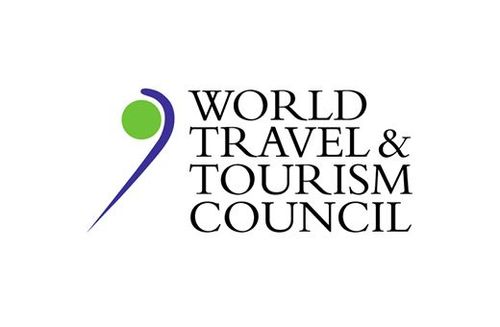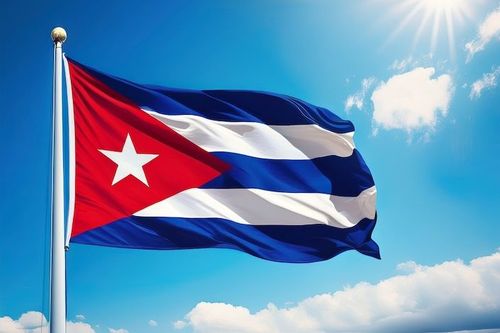Where travel agents earn, learn and save!
News / WTTC Economic Trends Report reveals COVID-19’s dramatic impact on Travel & Tourism around the world
COVID-19 pandemic saw Asia-Pacific region suffer the greatest GDP losses

July 5 - Asia Pacific was the region hit hardest by the COVID-19 pandemic according to the new annual Economic Trends Report from the World Travel & Tourism Council (WTTC).
The report reveals the full dramatic impact of travel restrictions designed to curb COVID-19 on the global economy, individual regions, and its job losses worldwide.
Asia-Pacific was the worst performing region, with the sector’s contribution to GDP dropping a damaging 53.7%, compared to the global fall of 49.1%.
International visitor spending was particularly hard hit across Asia Pacific, falling by 74.4%, as many countries across the region closed their borders to inbound tourists. Domestic spending witnessed a lower but equally punishing decline of 48.1%.
Travel & Tourism employment in the region fell by 18.4%, equating to a shocking 34.1 million jobs.
However, despite this decline, Asia-Pacific remained the largest region for the sector’s employment in 2020, accounting for 55% (151 million) of all global Travel & Tourism jobs.
The report also revealed the European Travel & Tourism sector suffered the second biggest economic collapse last year, dropping 51.4% (€987 BN).
This significant and damaging decline was in part due to continuing mobility restrictions to curb the spread of the virus.
The report showed domestic spending in Europe declined by 48.4%, offset by some intra-regional travel, however international spending fell at an even sharper rate, by 63.8%.
Despite this, Europe remained the top global region for international visitor spending.
However, Travel & Tourism employment still suffered across the Continent, falling 9.3%, equating to a dramatic loss of 3.6 million jobs.
Travel & Tourism GDP in Africa dropped 49.2% in 2020, in line with the global average.
Domestic spending declined by 42.8%, while international spending saw a much steeper contraction at 66.8%.
In terms of employment losses, Africa suffered disproportionately more than other regions, falling 29.3%, representing a staggering 7.2 million jobs.
Travel & Tourism’s contribution to GDP in the Middle East decreased significantly in 2020, dropping 51.1%.
While domestic spending declined 42.8%, international spending saw a much steeper fall of 70.3%, in part driven by severe restrictions.
The region, which was highly reliant on international tourism in 2019, saw international spending as a share of total Travel & Tourism spending drop from 62% of the total in 2019 to just 46% in 2020. However, domestic spending grew in share, from 38% of the total in 2019 to 54% in 2020.
Despite a 42.4% decline in Travel & Tourism GDP in 2020, the Americas was the least affected major region globally.
As a result, it remained the largest region in terms of its economic importance, accounting for 35% of global direct Travel & Tourism GDP.
While domestic spending dropped by 38.9%, international spending saw a significantly sharper decline of 72.1% due to severe travel restrictions on inbound visitors.
The Caribbean, which is as a region highly reliant upon international visitors, was the worst affected ‘sub-region’ globally. Its Travel & Tourism GDP fell 58% last year, from 14.1% of its total economy in 2019, to just 6.4% in 2020.
The WTTC Economic Trends Report shows how the Travel & Tourism sector enables socio-economic development, job creation, and significant positive social impact, including providing unique opportunities to women, minorities, and youth.
It suggests that the sector will pivot and adapt to ultimately return stronger post COVID-19, identifying trends already gaining traction and exploring the shifts that may be required to sustain Travel & Tourism in the future.
From a demand perspective, COVID-19 is transforming traveller inclinations and behaviours toward the familiar, predictable, trusted and towards perceived ‘low risk’ destinations. According to the report, more regional holidays, with extensive research and planning, and the great outdoors, will reign in the short-term.
COVID-19 is also proving to be a catalyst in the Travel & Tourism sector’s quest for innovation and the integration of new technologies such as biometrics, which would enable a more seamless traveller experience.
As global Travel & Tourism starts seeing the light at the end of the tunnel and work to accelerate the resumption of safe international travel takes place, it is essential the sector rebuilds trust to travel. While the pent-up demand is significant, ever-changing travel restrictions have affected consumer confidence to book.
WTTC, which has continually been at the forefront in leading the private sector in the efforts to rebuild global consumer confidence, advocates the need for an internationally coordinated, consistent, and transparent approach to enable safe travel.
Having clear and coordinated health & hygiene protocols would support the sector in rebuilding traveller confidence and allow for international travel to resume and recover swiftly.
To read the WTTC Economic Trends Report in full, please click here.
More Travel News:
The Excellence Collection resumes operations of its properties in Mexico, the Dominican Republic and Jamaica
UNWTO in Mexico to build on historic political support for Tourism
WTTC welcomes the launch of the EU Digital COVID Certificate
American Airlines sues Sabre over how tickets are displayed to Travel Agencies











